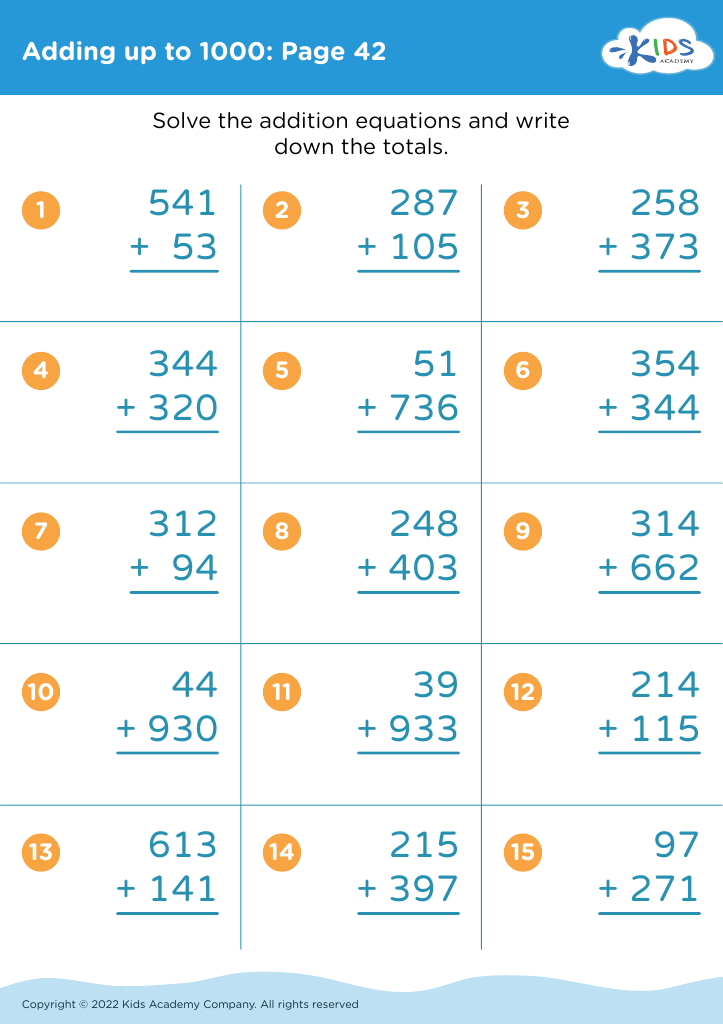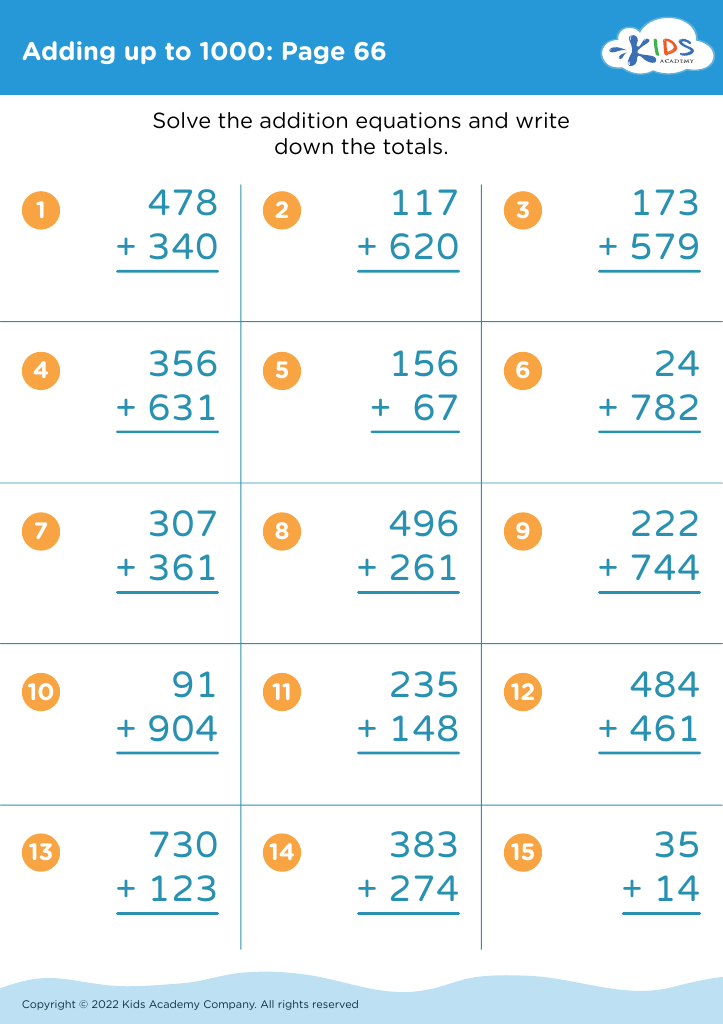Addition Practice Adding up to 1000 Misc Worksheets for 8-Year-Olds
5 filtered results
-
From - To
Unlock your child's potential in math with our 'Addition Practice: Adding Up to 1000 Misc Worksheets for 8-Year-Olds'! Designed specifically for young learners, these engaging worksheets are perfect for building essential addition skills and boosting math confidence. Each worksheet provides diverse problems to solve, promoting critical thinking and accuracy. Our fun and interactive activities make learning enjoyable, helping kids perform better in school and daily life. With varied difficulty levels, these printables cater to different learning paces, ensuring all children are challenged appropriately. Transform math practice into a fun adventure - start today!
Understanding addition up to 1000 is crucial for 8-year-olds as it forms a substantial part of their foundational math skills, which they'll rely on throughout their education and everyday life. Proficient addition skills are essential for performing more advanced mathematical operations like subtraction, multiplication, and division. Moreover, having a strong grasp of addition helps students develop critical thinking and problem-solving skills.
When parents and teachers invest time in ensuring children practice addition up to 1000, they enable young learners to build numerical fluency. This fluency boosts their confidence and reduces math anxiety, creating positive attitudes towards math learning. Furthermore, competence in addition can significantly enhance children’s performance in standardized tests, which often measure math proficiency through direct problems requiring node addition skills.
Beyond academics, addition is used in day-to-day activities such as financial transactions, cooking measurements, time management, and many sorts of estimation tasks. Given its practical applications, being skilled at addition allows children to navigate real-world situations better.
Subsequently, prioritizing addition practice for 8-year-olds isn't merely about academic success; it lays down a pathway for their lifelong problem-solving capabilities and practical decision-making abilities in their journey towards adulthood. Parents and teachers engaging actively in this practice foster a supportive learning environment that promotes overall development.



















